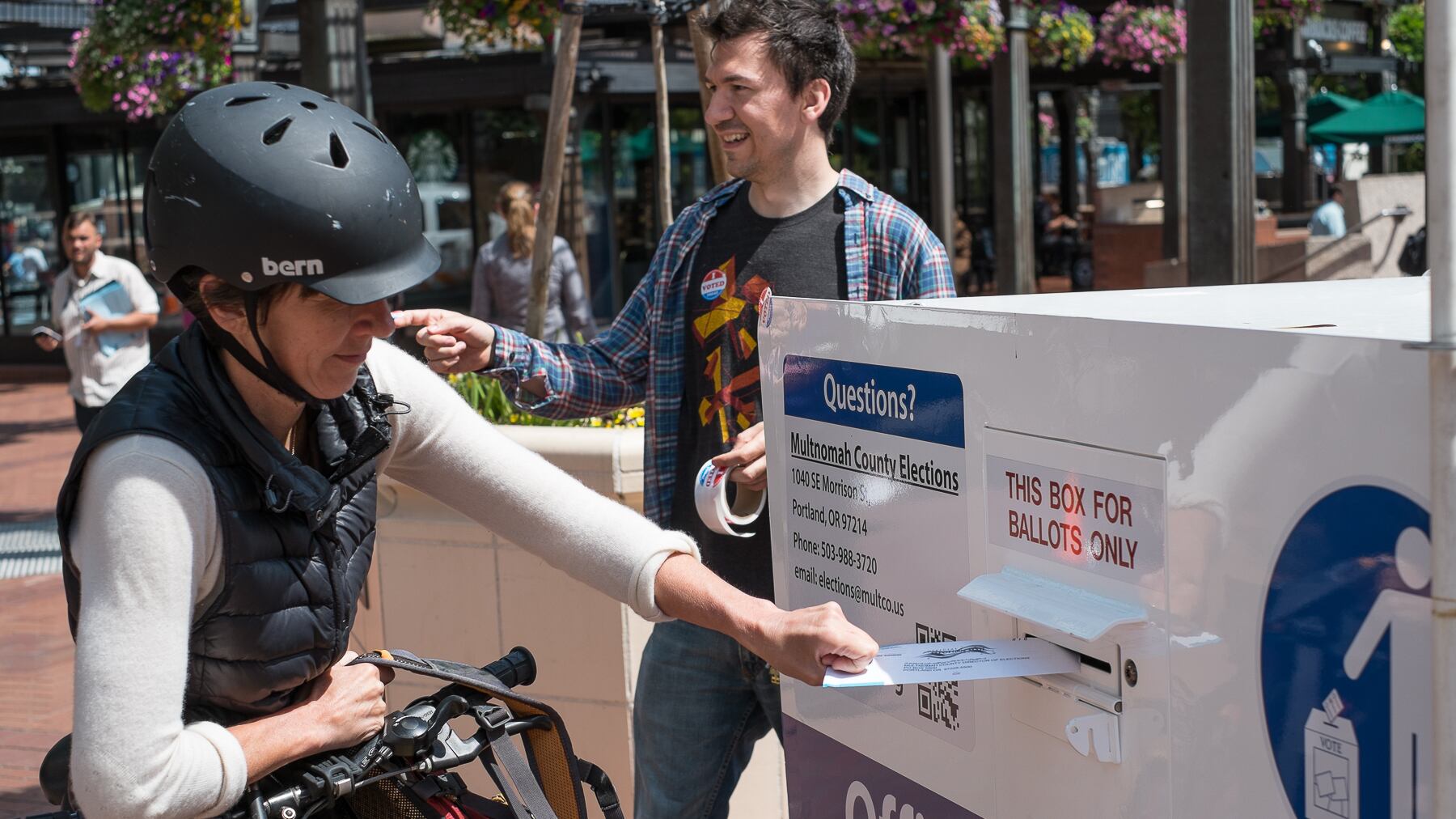Oregon Secretary of State Dennis Richardson announced this afternoon that his office will no longer release the birth dates and and phone numbers of the state's registered voters, in an effort to protect their privacy.
Richardson's announcement comes in the wake of demands by President Donald Trump's election integrity commission for a bevy of voter information, including Social Security numbers.
Richardson, the state's highest-ranking Republican, told the commission in June that the state would release only limited voter data—and that the feds had to pay $500, just like anybody else who requested an Oregon voter list. He also promised to consult with Oregon Attorney General Ellen Rosenblum about state laws on disclosing voter information. (Disclosure: Rosenblum is married to the co-owner of WW's parent company.)
Today, Richardson said that review led him to reduce, at least for until the next session of the Oregon Legislature, what information the state will hand out.
"The legislature has enacted laws that require statewide voter lists to be publicly available, and this serves the critical public policy interest of ensuring transparency and accountability in the conduct of elections," Richardson said in a statement. "I encourage the legislature to comprehensively review the statutes governing publicly available voter information in the 2018 session; this new private information policy will serve as a stopgap until the legislature decides to update the law."
Richardson also revealed that Trump's election integrity commission has sent a second request for the Oregon voting rolls—this week.
Commission vice chair Kris Kobach asked Oregon again, on July 26, for voter data. Richardson said that request was narrow enough in scope to comply with Oregon law.
But the feds still haven't paid $500, he noted. So he hasn't given them anything.

Trump's election integrity commission has been widely condemned as an effort to prove the president's conspiracy theories about undocumented immigrants voting, and to purge the voter rolls of minorities. Richardson took heavy criticism for a slow response to the federal election probe last month—even though he denied the feds' request.
This time, he got out in front of the story.
Here's his full press release.
On June 28, 2017, the Presidential Advisory Commission on Election Integrity requested publicly available voter registration information from all 50 states. Secretary Dennis Richardson responded to the Commission with a letter explaining the statutory requirements that apply to everyone who requests a statewide list. The privacy issues raised by the Commission's request and related media coverage prompted a full legal and policy review by Secretary of State Dennis Richardson.
To ensure protection of Oregon voter information, Secretary Richardson announced today a new policy on what information will be included in statewide voter registration lists. Under Oregon law, anyone who pays $500 is entitled to certain voter information. Consistent with legal advice by Oregon's Attorney General, effective immediately, Secretary Richardson has stated the following:
"Balancing the need for both privacy and transparency is a critical challenge in the internet age.
"In Oregon, the Secretary of State's office does not and cannot disclose how a person voted in any election.
"When a statewide request for voters' information is received, the Secretary of State's office does not disclose a voter's social security number, driver's license number, signature, or disability information.
"Although previous Oregon Secretaries of State routinely disclosed voters' phone numbers and birth month/day, due to the present capacities for digital mining and widespread dissemination of personal information, such information shall remain private from now until the legislature reconvenes next year.
"The legislature has enacted laws that require statewide voter lists to be publicly available, and this serves the critical public policy interest of ensuring transparency and accountability in the conduct of elections. I encourage the legislature to comprehensively review the statutes governing publicly available voter information in the 2018 session; this new private information policy will serve as a stopgap until the legislature decides to update the law."
Thus, until the legislature changes Oregon public disclosure law, the following information will be available to all requesting parties who pay the $500 fee and agree to not use the information for commercial purposes: full name, address, effective registration date and status, birth year, political party affiliation, voter participation history, precinct name, precinct split, and associated Election Division number. Disclosure of the above information is either required by law or necessary to ensure full accountability for the conduct of elections. In addition, Oregon law does not allow disclosure of certain information about public safety officers, participants in the Address Confidentiality Program (for victims of domestic violence and other crimes), persons who demonstrate that their personal safety is in danger, and 16 or 17 years-olds who preregister to vote but will not reach age 18 by the date of the next election.
Yesterday we received a second request for voter information from the Presidential Advisory Commission on Election Integrity. It addresses the concerns voiced by myself and many other Secretaries of State over the importance of maintaining the privacy of voter information. To address these concerns, Vice Chair Kobach clarified three areas of critical concern:
1. Only information that is already available to the public under Oregon law is being requested;
2. The only information that will be made public by the Commission are statistical conclusions drawn from the data; and
3. The Commission will not release any personally identifiable information from voter registration records to the public.
However, as the letter did not contain the mandatory fee of $500 required by Oregon state law [ORS 247.945(4)], Secretary Richardson is still unable to release the statewide voter list.

